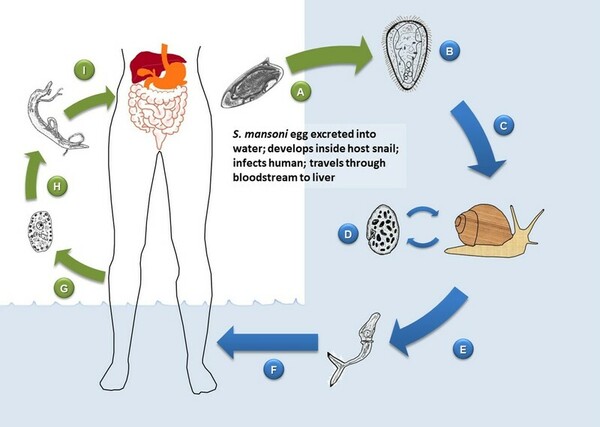Exposure to Schistosoma mansoni antigen induces an allergic response to peanuts in an American cockroach model
(1) Academies of Loudoun
https://doi.org/10.59720/22-006
Across the world, tens of millions of people suffer from peanut allergies. Despite the large amount of research conducted on the topic, the root cause of this disease is still unknown. Peanut allergy is characterized by an immune hypersensitivity reaction to a peanut antigen, which is bound by immunoglobulin E (IgE),the antibody associated with parasitic infections as well as allergies. Previous research has shown that a protein, Ara-h-1, found in peanuts, is crossreactive with the IPSE/α-1 and κ-5 proteins found in the eggs of the parasitic blood fluke, Schistosoma mansoni. Here, we propose that this cross-reactivity contributes to the development of peanut allergies. We investigated the relationship between S. mansoniand peanut allergy using an American cockroach model, which was selected due to its capability to exhibit an immune response with both memory and specificity, making its humoral immunity comparable to that of humans. Based on our observations, we established that cockroaches injected with a soluble S. mansoni egg antigen exhibited physical symptoms of an allergic reaction after consuming peanuts, likely due to the aforementioned cross-reactivity. This research demonstrates a novel, direct association between a parasitic worm and food allergies in vivo. These results have the potential to change the way the scientific community views peanut allergies, as well as other food allergies, and open new avenues of research with the hope of finding a cure.
This article has been tagged with: